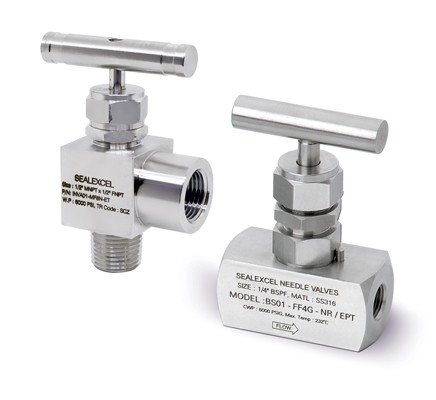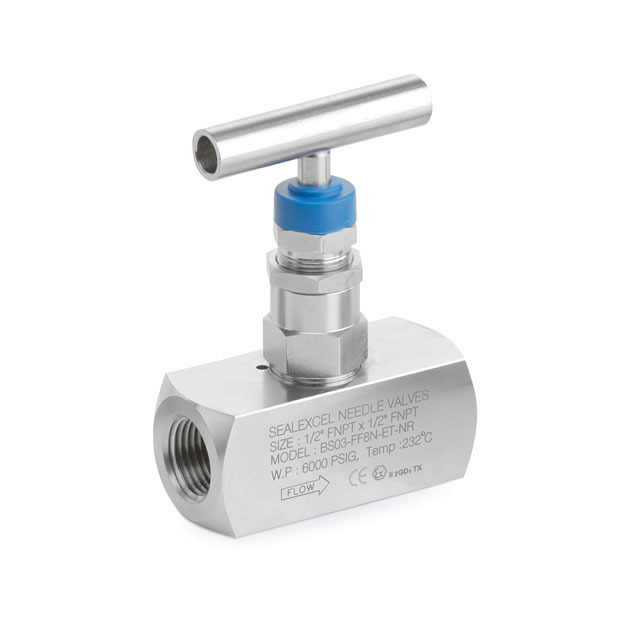Different types of industrial valves and its functions
April 26, 2016Understanding Manifold Valve: Definition, Types And Advantages
July 20, 2018Similar to common industrial valves, needle valves are used to control flow. They have a construction as 
Each and every needle valve must offer protected and leakage-free connections, but that’s just the starting. Varying applications possess their own unique, individual needs.
When planning to buy needle valves, you need to pay heed to a few crucial factors. Stated below are some of the most vital aspects to consider before taking a final decision:
Pressure Ratings
The workable pressures offered by various kinds of needle valves vary based on the range of applications. Top performing needle valves usually bear pressures of about 5000 and 6000 psi at 100°F temperature. In scenarios where high levels of pressure are required, needle valves that can withstand about 10,000 psi at 100°F are easily available.
Size of the Valve
Comprehensively designed needle valves are quite easily found in an array of varying sizes and end-connection selections. The pressure ratings stated above can be attained via male/female ends and in usual or metric dimensions. Needle valves are frequently available in sizes from a range of 2 to 11 mm and average sizes of 1/8” to 1”. When you pick an appropriate size, you will be assured of seamless and effective operations with lesser wear & tear and leakages.
Operating Temperatures
Just like common industrial components, needle valves are supposed to operate in a range of surroundings for effective functioning. Temperature and a host of other things in industrial surroundings can be severe. The packing utilized for needle valves usually aid in identifying endurable temperature ranges.
Here are the two most commonly utilized materials for increasing the temperature range of valves:
PTFE
Polytetrafluoroethylene is one of the finest known foundations of Teflon. When it is utilized for packing needle valves, PTFE offers added fortitude and opposition to soaring temperatures. Average PTFE packing caters to temperatures ranging from -65°F to 450°F.
 PEEK
PEEK
Polyether ether ketone is a colorless natural thermoplastic polymer that is frequently utilized for engineering applications. It preserves chemical and motorized resistance traits to quite high temperatures. When it comes to needle valves, PEEK can raise the temperature resistance up to 600°F when being utilized as extra packing.
If you’re on the lookout for high-quality, leak-free and secure needle valves, this is the right place for you. Known as a reputed needle valve manufacturer and supplier, we have a full range of high pressure needle valves. Call us now at 0091-22-26788534 for placing orders or view our product catalogue for complete range.



